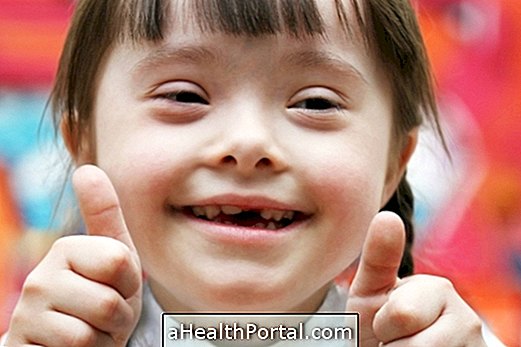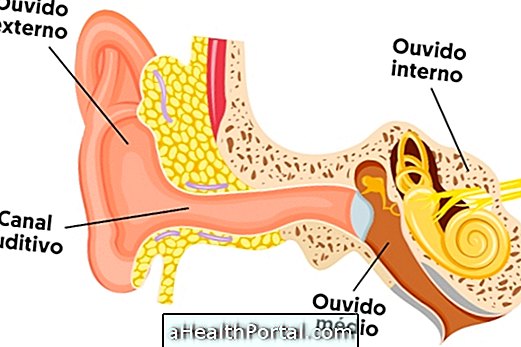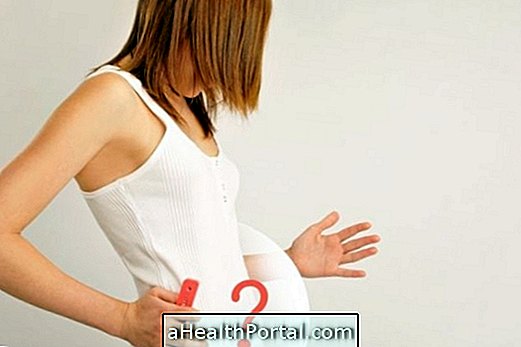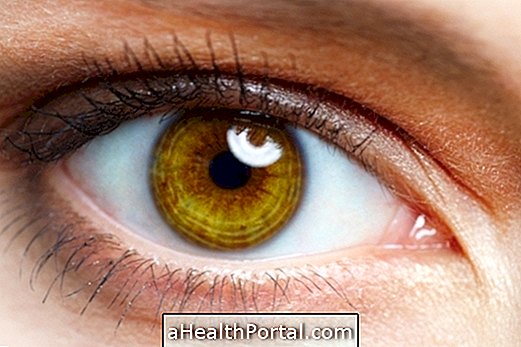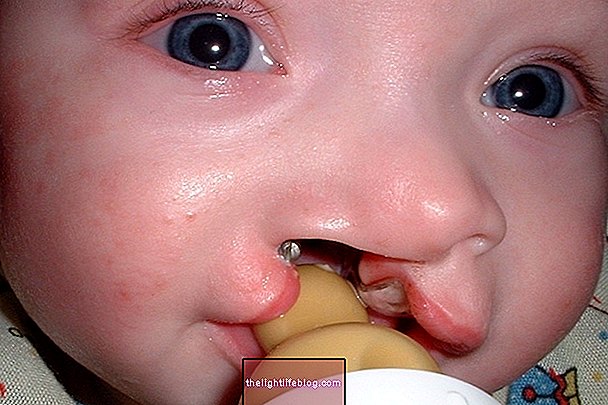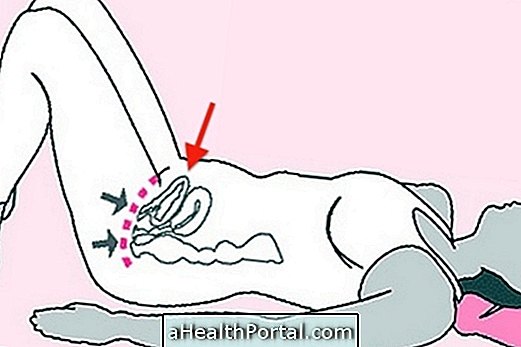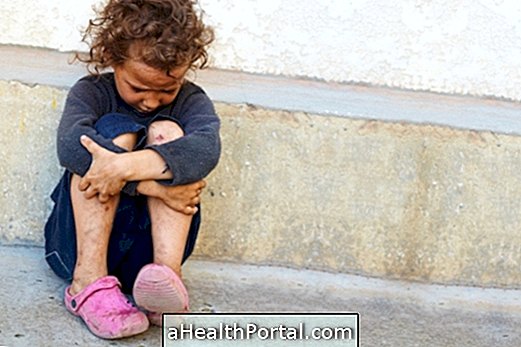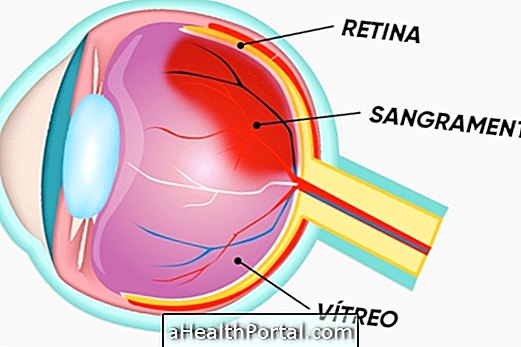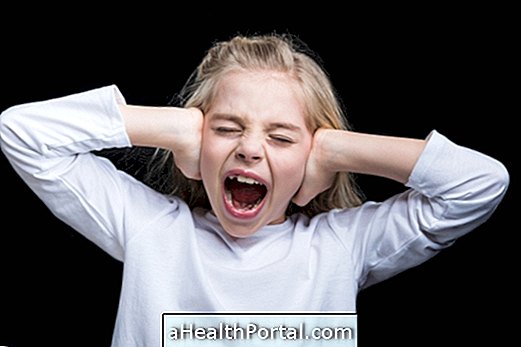Dizziness is a symptom of any change in the body, which does not always indicate a serious condition or condition, and most often occurs in a condition known as labyrinthitis, but may also indicate changes in balance, lowering of blood pressure, changes in function of the heart or side effect of medications.
It is more common that dizziness develops in the elderly, however, also occurs in young people, and may arise in different situations depending on the cause, such as lying down, common in labyrinthitis, rising, arising from pressure drops, or do some physical exertion, which happens in heart or pressure problems.
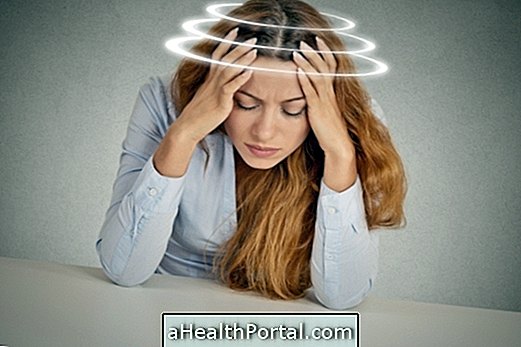
When repeated episodes of dizziness occur, it is recommended to schedule a consultation with the general practitioner or family physician to investigate the possible causes, however, if the dizziness is very strong or prolonged, for more than 1 hour, it is recommended to go to first aid for faster assessment and treatment.
Main causes of dizziness
There are several forms of dizziness, which may appear alone or accompanied by other symptoms such as nausea, weakness in the legs, headache or "empty head" feeling. The main causes are:
1. Vertigo or Labirintite
Labyrinthitis is the most common cause of dizziness, it is the type of dizziness that gives the feeling that everything is spinning around, which can be accompanied by nausea and tinnitus, and usually happens by changes in the ear. Vertigo tends to cause dizziness even when lying down, and it is common for it to be triggered with head movements, such as turning the side of the bed or looking sideways.
- What to do : The treatment for benign paroxysmal vertigo is done by the otorrino, who can do some repositioning maneuvers of the otoliths, called the Epley maneuver, in addition to recommending the use of drugs such as Betaine, for daily use, and Dramin, in the crises In addition, it is recommended to observe the presence of wax stoppers in the ear, in addition to avoiding stress and consumption of caffeine, sugar and cigarette, which are situations that may worsen the dizziness crisis.
Other less common vertigo conditions are labyrinthitis caused by inflammation or ear infections, vestibular neuritis, and Meniere's disease, for example. Learn more about the causes and how to treat labyrinthitis.
2. Imbalance
The feeling of imbalance is another important cause of dizziness, and it happens to cause the sensation of being staggering or with loss of the balance. This can cause constant dizziness and usually occurs in the elderly or in situations of:
- Vision changes, such as cataracts, glaucoma, myopia, or farsightedness;
- Neurological diseases, such as Parkinson's, stroke, brain tumor or Alzheimer's, for example;
- Bump on the head, which can cause temporary or permanent injuries in the brain region that regulates the balance ;
- Loss of sensation in the feet and legs caused by diabetes;
- Consumption of alcohol or drugs, which alter the perception and ability of the brain to function;
- Use of medicines that can alter balance, such as Diazepam, Clonazepam, Fernobarbital, Fenoína and Metoclopramida, for example. Understand better which medicines cause dizziness.
What to do : In order to treat the imbalance, it is necessary to resolve its cause, with the appropriate treatment of the vision with the ophthalmologist or of the neurological disease with the neurologist. It is also important to consult with the geriatrician or general practitioner so that adjustments of the medication are made according to the condition and need of each person.

3. Pressure drop
Dizziness that occurs from cardiac and circulation changes is called pre-syncope or orthostatic hypotension, and arises when pressure falls and blood is not pumped properly into the brain, causing the feeling of fainting or dimming and the appearance of bright spots in vision.
This type of dizziness may arise when you wake up, get up, during an exercise, or even suddenly when you are standing still. The main causes are:
- Sudden pressure drop, called orthostatic hypotension, and arises from a defect in pressure adjustment, which is usually not severe, and is due to changes in posture, such as getting up from a bed or a chair;
- Heart problems, such as arrhythmias or heart failure, that make it difficult for blood to flow through the circulation;
- Use of some medicines that cause pressure drops, such as diuretics, nitrate, methyldopa, clonidine, levodopa and amitriptyline, for example, mainly in the elderly;
- Pregnancy as it is a period in which there are changes in circulation and there may be decrease in blood pressure due to the weight of the uterus on the blood vessels. Learn more details on how to avoid and relieve pregnancy dizziness.
Other conditions, such as anemia and hypoglycaemia, while not causing a drop in blood pressure, alter the blood's ability to carry oxygen and nutrients to brain cells, and can cause dizziness.
What to do : The treatment for this type of dizziness also depends on the resolution of your cause, which can be done with a cardiologist, geriatrician or general practitioner, who can do the research with the necessary exams and adjustments.
4. Anxiety
Psychological changes such as depression and anxiety cause dizziness as they trigger the panic syndrome and changes in breathing. These situations cause a dizziness that is usually accompanied by shortness of breath, tremors and tingling in the extremities such as hands, feet and mouth.
This type of dizziness can also happen repeatedly, and it comes in periods of increased stress.
What to do : treat anxiety, psychotherapy, and, if necessary, antidepressant or anxiolytic medications as prescribed by the psychiatrist.
What to do in case of dizziness
When feeling dizzy, keep your eyes open, stop, and look at a fixed point in front of you. Doing this for a few seconds usually feels dizzy quickly. Vertigo is when the person is standing still but feels things move around on their own, and it seems like the world is spinning around them. This situation is very common, and usually benign, and has a cure, which can be solved with eye exercises and a specific technique that improves the dizziness crises in a few sessions. Check out the step by step exercises and this technique here.
Watch the following video and see the exercises that can help to end dizziness:

